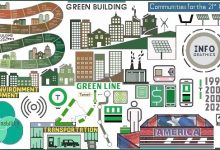
Mr. Dey, please tell us more about yourself and your professional background?
Hi, first of all thank you for giving me the opportunity to speak at the European Digital Week 2021.
I’m an entrepreneur, NFT Investor, Collector and TEDxSpeaker. I’ve been part of the UK and India Tech-Startup ecosystem since 2007.
I moved to London in 2005 to pursue my higher education and also started my entrepreneurial journey when I was pursuing Master of Business Administration (MBA) in Brunel University, London. As a founding member of Brunel Entrepreneurs Society, I started Global Entrepreneurship Partnership (GEP) to bring aspiring entrepreneurs, technology enthusiasts and corporate partners and also strategic investors together to build the next-gen digital innovation in the UK and Going Global.
Being part of NACUE, UK during my university days helped me to meet and network with thousands of young and also very successful entrepreneurs including my childhood hero Sir Richard Branson, to build the social capital. Since then I’ve been working on Global Silicon Triangle, a decentralized global blockchain technology consortium, an initiative responsible for the exchange of open source software development, sharing and exchange of technical expertise among three most famous hubs for technology companies in America, Europe and Asia i.e. Silicon Valley of California, Silicon Roundabout of London and Silicon Plateau of Bangalore. It aims to create a tech entrepreneurial hub inter-connecting the 3 main technology clusters and assists companies and individuals considering to locate or do business in the Silicon triangle by providing infrastructure support, human resource support and by facilitating introductions to the government and business community.
Digital India Hack-a-thon, ‘Ideation to MVP’ in 36hours, is an initiative to inspire young developers & designers and bring together entrepreneurs and investors to empower Hon’ble Prime Minister of India, Narendra Modi’s Digital India campaign.
In your opinion, can crypto currency help the country’s economic growth and how?
Yes, definitely! Now, we are part of “Web 3.0 and 5G revolution”, the world is moving towards Open Innovation, Going Digital, new technology adoptions and also promoting entrepreneurship beyond borders
This creates an opportunity among various nations to collaborate with each other and exchange technology, innovation and financial trade agreements (FTA).
Digital Money and Digital Assets are part of the new economy. Many counties are building land records on blockchain so they can have digital assets available for global investors to invest in the ecosystem. decentralized finance (DeFi) and Central Bank Digital Currency (CBDC) are opening new business opportunities every day. Few countries have already started their own digital currencies and also eResidency and eCitizenship programs. This will attract technology enthusiasts, innovators to participate and bring global investors to be part of this economy .
What do you think is the future of money?
The future of money is going to be digital and eventually getting tokenism economy. Countries have to build digital banks and bring regulatory changes to adopt this new format. Entrepreneurs are going to be part of the decentralised ecosystem and this is bring decentralised autonomous organisations to collaborate with each other to sustain and grow.
How can governments support blockchain innovation and adoption?
Very interesting question! Government can start their own incubation, accelerator programs, launch industry specific CoHorts and also Financial Technology Strategy Board (Sandbox Programs) to allow global innovators and local entrepreneurs to collaborate and be part of such innovative ecosystem. They can also make regulatory changes and facilitate local enterprise zones to allow foreign investors to be part of cluster based projects and also to invest in hyper-local economy and solve real world challenges via blockchain technology.
The Smart Contract is pretty much acceptable globally. It brings trust, transparency, cross-border transactions and also improves efficiency in the system. Government can use Public-Private Partnership or Peer to Peer (P2P) networks to build land records via smart contracts, put their healthcare, local development programs, voting rights, defence purchase system, skills development and training and recruitment, etc in to the single-window ecosystem via blockchain. This will help the Government to take quick decisions on Smart City Projects, Smart Airports, Land-Sea- Railway, Telecom, Transportation, IT and Communication Infrastructure, etc.











